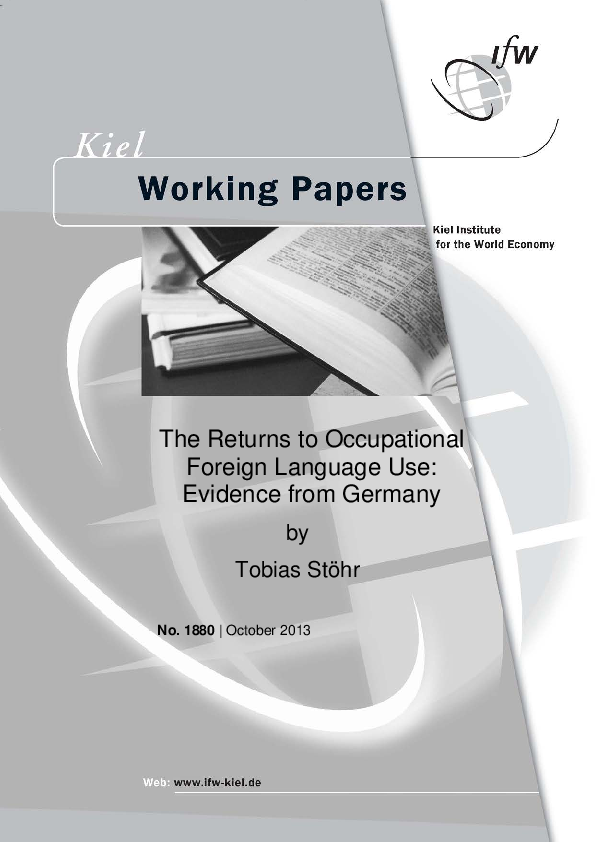Working Paper
The Returns to Occupational Foreign Language Use: Evidence from Germany
Authors
Publication Date
JEL Classification
Key Words
This paper analyses the wage premia associated with workers' occupational use of foreign languages in Germany. After eliminating time-invariant unobserved heterogeneity and other confounding factors, sizable returns of about 10 percent to applying fluent English skills are found.
Returns to occupational use of other foreign languages are, if anything, restricted to a few specialized occupations. Compared to non-migrants, immigrants receive more than twice the return for using English. Returns depend crucially on speaking German well, thus excluding many ?first generation migrants and are found to occur particularly in service occupations that involve international factor flows. In such occupations it is likely that migrants can apply complementary skills such as international experience that their non-migrant counterparts lack. As immigrants do not earn significant wage premia for applying their native language on the job in addition to those for English, their trade-fostering potential seems to be unlocked by complementary
fluency in the two business languages German and English.







